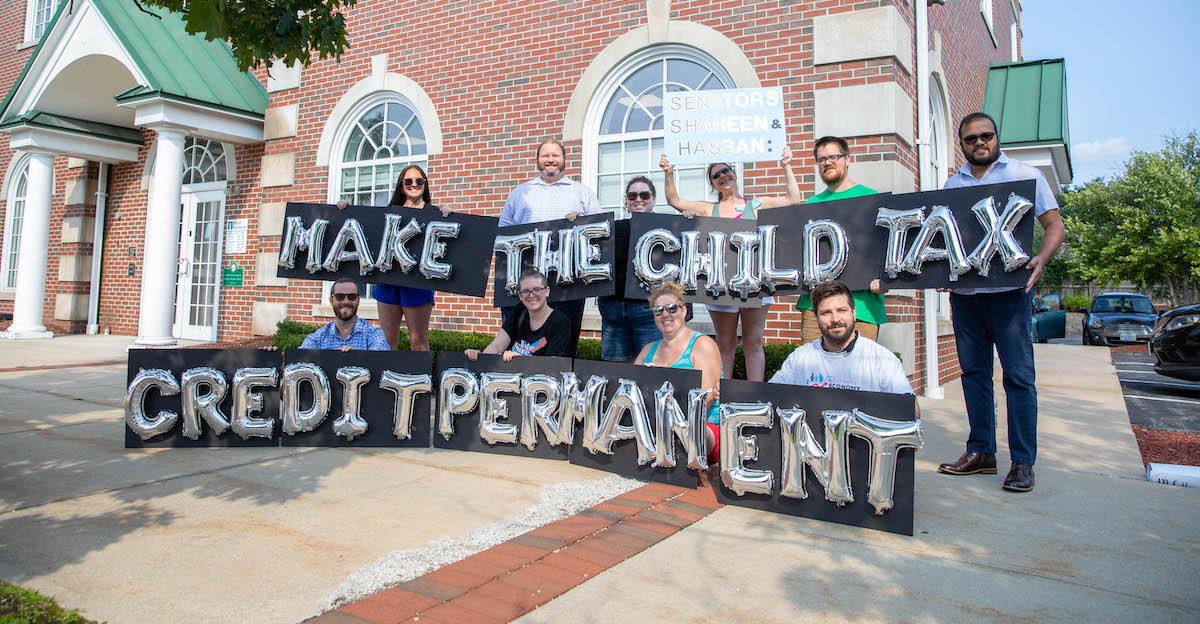Will Biden's Build Back Better Program Expand the Child Tax Credit?
July's expansion of the Child Tax Credit lifted millions of low income family out of food scarcity. Will it expand more?
Nov. 17 2021, Published 4:04 p.m. ET

The (Child Tax Credit) is a tax credit given to parents with dependents and it's linked to the number of dependents a taxpayer has. It's also based on their income.
For anyone who filed their taxes for 2019 and 2020 and has dependents, they automatically received payment. They also received payment if they fell in any of the three tax brackets:
- taxpayers who filed together and earned up to $150,000
- single individuals or a head of household who earned up to $112,500
- any individual taxpayer who earned up to $75,000
Who qualified for the Child Tax Credit?
Dependents are qualifying children that identify as son, daughter, foster child, sister, brother, stepsister, stepbrother, or a descendant of any other former. Adopted children are treated as your own child. The tax credit was expanded earlier this year and increased the amount taxpayers can receive per child from $2,000 to $3,000 for children over the age of six and from $2,000 to $3,600 for children under the age of six. The expansion also lifted the age limit ceiling from 16 to 17 years old.
The payments come automatically in the form of monthly installments of $250 or $300 per child. The payments started in July and were sent via direct deposit or by mail. An estimated 39 million families received the CTC. The past summer, the IRS started sending advance payments of the tax credit and paid half the total amount in advanced monthly payments. The recipients will receive the other half in 2022 when they file their 2021 income tax return.
The Child Tax Credit lifted millions of families out of food scarcity.
The benefits of this expansion were immediate and largely impactful. CNBC reported that food insecurity decreased dramatically as a result of the expansion. In July alone, there was a 3 percent drop in households that experienced hunger.
Also, families that earned less than $50,000 experienced a decrease in food scarcity from 26 percent to 18.5 percent. More statistics show that 47 percent of recipients of the tax credit spent the money to stockpile food, while 32 percent of the families put the money towards savings or to eliminate debt.

What the future holds for the Child Tax Credit
Parents will still receive two more checks (including November) in CTC for this year. The remaining balance will be paid after tax season in 2022. Democrats are deciding whether or not the CTC should be expanded into 2022 or further. In an effort to trim President Biden's spending, lawmakers think that expanding to one year is sufficient. In contrast, House Democrats are in favor of expanding the credit to 2025.
The Urban Institute reported that expanding the tax credit would remove 4.3 million children from poverty. Congressional Democrats like Joe Manchin think that the tax credit should be contingent on employment, citing the 11 million jobs that remain unfilled. According to CNBC as of Nov. 16, the Build Back Better program only extends the credit through 2022 with the amount per child dropping to just $1,000 per child after 2025. However, a final decision hasn't been made yet.
